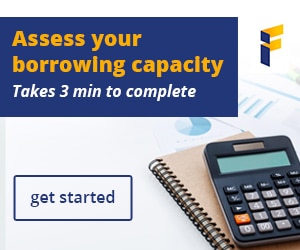4 Property Investment Mistakes You Must Avoid
Here’s a startling but true fact: most Australians who get involved in property investment never develop the financial freedom they were looking for.
 Close to half of those who get into real estate sell up in the first 5 years, and of those still in the game, most never get past their second investment property.
Close to half of those who get into real estate sell up in the first 5 years, and of those still in the game, most never get past their second investment property.
However, some investors do very, very well.
To help you succeed in your property investment endeavors, here are four common mistakes property investors make and how you can avoid them.
1. Buying the wrong property
To achieve financial freedom through property investment you’ll need to accumulate a large asset base.
This means owning the right properties – ones that grow strongly in value and outperform the averages, so you can borrow against your increased equity and fund further property purchases.
However, when you ask many investors why they purchased their property they’ll say things like: it was close to where they live, where they holiday or where they want to retire.
These are all emotional reasons for buying property, and while possibly a good way to buy your home; they are not the right way to buy an investment property.
Of course the alternative is to buy properties based on research which further your wealth creation plans.
2. Not having a plan
Most of us spend more time planning our holidays than we do planning our financial future.
If you don’t have an investment plan, how can you hope to develop financial independence?
Most Australians fall into 4 categories:
a. They don’t invest at all.
The majority of Australians fall into this group – they just haven’t taken action yet.
b. They don’t invest enough.
Others have bought a home and understand the power of appreciating real estate, but they want to pay it off before they invest in more real estate.
This means they are not using the untapped equity in their home to further their financial future.
c. They invest too much.
Some people invest too much – yes that’s possible!
They have taken unnecessary risks and borrowed too much. Investors who are too highly geared may run into trouble as interest rates rise in the future.
d. Those who invest the right amount.
Then there are those who invest just the right amount.
Not too little. Not too much. They invest the right amount -sounds a bit like Goldilocks doesn’t it?
For them every property purchase is part of a thought-out wealth creation plan.
The problem is that if you don’t have a strategy it’s easy to get distracted by all the “opportunities” that keep cropping up.
Unfortunately many of these don’t work out as expected.
Look at all the investors who bought off the plan or in the so-called next “hot spot”, only to see the value of their properties underperform.
3. Not reviewing their property portfolio
While property is a long-term investment and the costs of buying and selling real estate are considerable, that doesn’t mean you should fall into the trap of not reviewing your property portfolio.
Of course you can’t easily “swap” properties or reweight you property portfolio like you would shares.
But you should still regularly review your property investment portfolio to see what you can do to improve or upgrade it’s performance.
When was the last time you checked to make sure you were getting the best rents or that your mortgage was appropriate for the current times?
Maybe it’s time to refinance against your increased equity and use the funds to give you a buffer for the uncertain times ahead or maybe to buy further properties?
And sometimes it is appropriate to consider selling an under performing property to enable you to buy a better investment.
Remember, in the next phase of our property cycle some properties will strongly outperform others and the gap between your under performing property and those investment grade properties will only widen.
Do you own the type of properties that will allow you to take advantage of the next property cycle?
If you own secondary properties or real estate in areas that are unlikely to benefit from strong capital growth, it may be worth selling up and replacing them with the type of property that will help you develop long term financial independence.
And the last common mistake I see investors make is…
4. Not Managing their Risk
Growing your property portfolio will depend on you being able to borrow money to hold on to your properties and keep buying more.
Therefore your ability to service your debts or to borrow additional funds would be a potential risk to you.
Not being able to service your loans could mean you’re forced to sell a property.
Not being able to borrow more would lessen your wealth creation opportunities.
Of course the risk management solution to prevent this happening is to prepare budgets and cash flow forecasts, manage your exposure to interest rate fluctuations and maintain cash flow buffers.
Smart investors don’t only buy properties; they buy time by having these financial buffers in their lines of credit or offset accounts, to not only cover their negative gearing but to see them through the ups and downs of the property cycle.
Another way sophisticated property investors secure their assets is to buy them in the correct ownership structures that protect their assets and legally minimize their tax.
Most wealthy property investors own nothing in their own names, but control their assets through companies or trusts.
- 8 Charts explaining why we’re in for a great time in property in 2021 - January 5, 2021
- New data shows COVID-19’s impact on Australians’ personal finances, including debt and insurance - December 21, 2020
- 4 key reasons why the property pessimists are changing their minds - October 12, 2020


